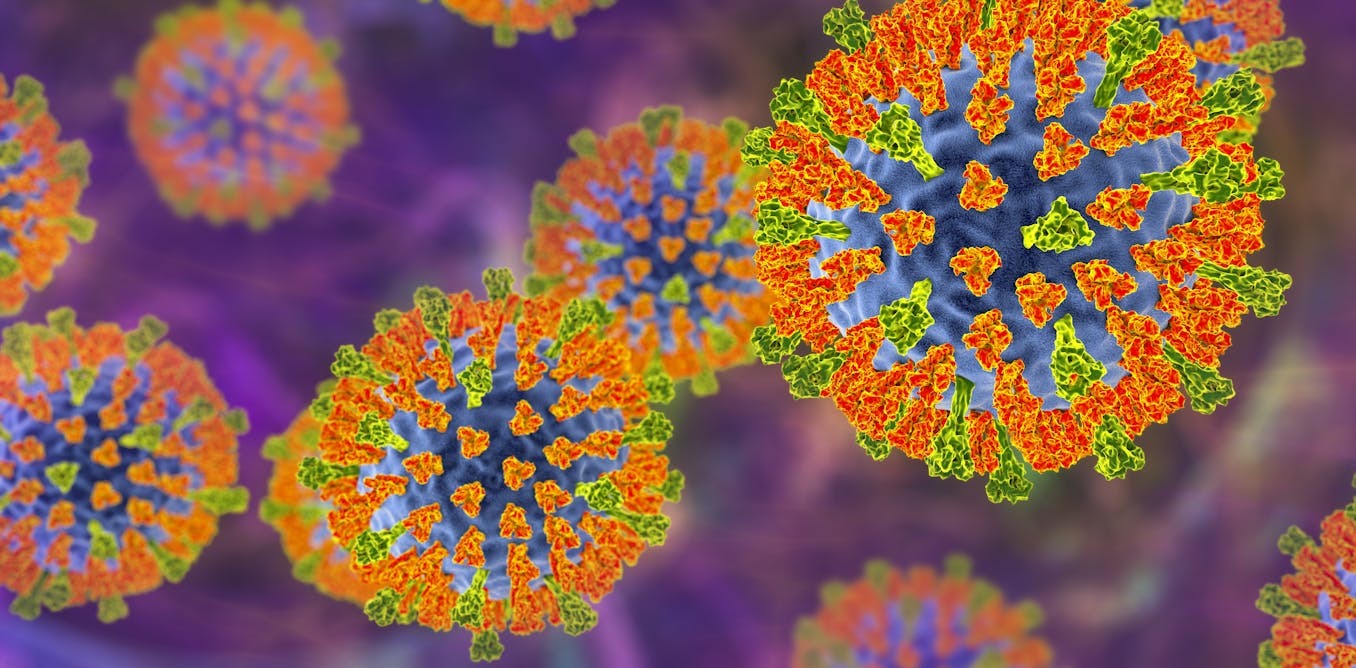AS THE clock strikes midnight, there’s no better way to bring in the New Year than popping a bottle of bubbly.
It’s easy to get caught up in the night’s festivities – but the start to the year might not feel as joyous if you’re waking up with a pounding head.
2
The morning after your New Year excesses can be pretty debilitating if you’re plagued by bad hangovers.
The unpleasant punishment for indulging in too much alcohol is caused by a number of factors, including dehydration, lack of sleep, inflammation and bowel irritation.
Lucy Diamond, registered dietitian and clinical director for innovation of weight management provider, Oviva, told Sun Health: “Alcohol is a diuretic that depletes essential nutrients and causes dehydration, leading to those all-too-familiar symptoms: headache, nausea, fatigue, and generally feeling a bit rough.”
But a greasy fry up and painkillers might not be your only options for dulling your symptoms.
Experts say some foods and supplements could help reduce them, making you recover quicker.
According to Lucy, “the key to recovery is replenishment and gentle nutrition”.
Shona Wilkinson, nutritionist at Dr Vegan, told Sun Health: “Celebrations during the festive season often lead to many of us overindulging on alcohol, leaving that all-too-familiar feeling – the dreaded hangover.
“Hangovers are pretty much guaranteed when you drink too much alcohol, as excessive consumption leaves your body dehydrated, filled with toxins and operating on low blood-sugar.
“The more regularly you drink, the more your liver loses its ability to regenerate and the worse you feel.
“Rather than ordering a takeaway to help alleviate the symptoms of a hangover, try incorporating some of these slightly more unusual ingredients in your diet.”
From pickle juice and milk thistle to more familiar remedies, here are eight foods, drinks and supplements to help soothe your sore head.
1. Milk thistle
One of the primary causes of a hangover is a build-up of acetaldehyde.
The toxic byproduct of breaking down alcohol contributes to inflammation in the liver and other organs, according to the National Institute on Alcohol Abuse and Alcoholism.
However, research shows some naturally occurring chemicals can help reduce this inflammation, tackling at least one of the symptoms of a hangover.
Silymarin, found in the milk thistle plant, has strong anti-inflammatory effects, which may help minimise the effects of toxins.
Shona said: “The milk thistle plant contains cynarin and silymarin that support the liver in the production of bile, which is essential in helping the body carry toxins out of the liver and into the gut for elimination.
“Milk thistle also helps to reduce symptoms of nausea and indigestion as it can help to stimulate the production of digestive body fluids including stomach acid and bile, contributing to normal gastrointestinal movement helping to prevent stomach bloating and reducing the unwanted inflammation in the stomach.
“You can take milk thistle in the form of a tea or incorporate it into your diet with a supplement.”
However, neither chemical will tackle all of the effects of a hangover, so milk thistle is not a hangover “cure” on its own.
2. Pickle juice
The key culprit behind the banging headaches you might have after a night on the sauce is dehydration.
Drinking alcohol causes the body to flush water out of your blood through the kidneys, resulting in you becoming dehydrated quickly.
This is why you might find yourself needing the toilet more often when drinking booze.
The next day, this can result in migraines, a fuzzy mouth and sore throat.
Foods to avoid
We’re all hit by cravings when dealing with clanging hangovers – from a breakfast fry up to crisps or a glass of something cold and fizzy.
But your go-to hangover remedies might not be doing you any favours.
According to Lucy, these are the foods and drinks to avoid:
- Greasy, heavy foods might seem tempting, but they’ll only add stress to your already struggling digestive system.
- Caffeine can further dehydrate you, so limit your coffee intake.
- Hair of the dog? Whilst this may be hard to avoid depending on your plans, another alcoholic drink will only delay your recovery.
“Preparation is key,” the dietitian added.
“Before a night out, have a substantial meal with protein and complex carbohydrates.
“During the evening, alternate alcoholic drinks with water, and have a recovery kit ready – think water, electrolyte drink, and easily digestible foods.”
However, some natural remedies can speed up your rehydration process because of the nutrients they contain, according to Shona.
She said: “Pickle juice is packed with electrolytes and essential minerals such as sodium, calcium, and potassium, all of which help with a number of the body’s vital processes.
“Crucially, electrolytes promote hydration, making pickle juice the perfect remedy if you’re looking to quench that hangover thirst.”
The most important way to ensure you rehydrate remains drinking lots of water.
3. Eggs and toast
Some more familiar foods may also help you through your hangover – such as eggs and a good old slice of toast.
Lucy said: “Eggs are rich in cysteine, which could help break down acetaldehyde, the toxic compound responsible for your worst hangover symptoms.”
As for your choice of toast, something other than white sandwich bread might be better – and you top it with some soft slices of avocado.
“A slice of wholegrain toast with avocado provides complex carbohydrates and healthy fats to stabilise blood sugar and provide sustained energy,” Lucy added.
4. Bananas and nuts
After a night of drinking, your body might low on essential minerals.
According to Lucy, you can get to work with replenishing them through food.
She told Sun Health: “Bananas are packed with potassium, which alcohol dramatically reduces.
“They’re easy on the stomach and help restore electrolyte balance.”
And handful of nuts may also help you out, the dietitian added.
“A small portion of nuts can provide magnesium and help with muscle recovery,” she explained.
5. Yoghurt
If you’re looking for something gentle to soothe your stomach, why not have a bit of yoghurt?
But make sure it’s not sweetened or flavoured, Lucy noted.
“Plain, live yoghurt helps replenish good gut bacteria depleted by alcohol consumption,” she explained.
6. Lemon peel
Another potential remedy for dealing with toxins can be found in lemons.
Lemon peel is naturally high in antioxidants, including D-limonene and vitamin C.
One study, published in the Asian Pacific Journal of Cancer Prevention, found lemon peel has more antioxidants than grapefruit or tangerine peels.
Separate research shows D-limonene can increase the body’s production of an enzyme that reduces the effects of oxidative stress.
Shona said: “Lemon peel contains a substance called ‘D-limonene’, which helps to detoxify the body of carcinogens and break down other nasty toxins.
“Try adding a full lemon to a glass of water or grating it into your food to give your body some love after the night before and top up your hydration levels.”
7. Ginger or peppermint tea
Nausea can be one of the worst effects of a hangover, and is caused by a number of factors.
However, a range of herbal teas have been shown to have a beneficial effect on feeling sick — including ginger and peppermint teas.
A study, published in the American Journal of Physiology-Gastrointestinal and Liver Physiology, showed just one gram of ginger can reduce feelings of nausea.
Shona said: “Hangovers can also leave you feeling nauseous.
How to avoid a hangover in the first place
Avoiding a hangover can be challenging. After all, you’re poisoning your body with alcohol and you can’t reverse the effects once done!
But there are several strategies you can employ to minimise the risk:
Stay hydrated: It’s a given – get your drink intake on point before, during, and after alcohol. Have a glass of water between alcoholic drinks and another large glass before going to bed.
Eat a proper meal: Have a substantial meal before you start drinking. Foods high in protein and healthy fats can slow the absorption of alcohol.
Choose drinks wisely: Clear spirits like vodka and gin tend to cause fewer hangovers compared to darker drinks like whisky, red wine, or beer.
Pace yourself: Pacing yourself means you’ll drink less. Drinking water between beverages will help, or try limiting yourself to one drink per hour. You could also stick to single spirits, rather than doubles.
Avoid mixing drinks: Stick to one type of alcohol throughout the evening to reduce the risk of a hangover.
Get lots of sleep: Get a good night’s sleep after drinking, as rest can help your body recover. After all, most us mostly feel fatigue more than anything the next day,
Consider supplements: Some people find that taking vitamins, such as B vitamins and zinc, can help reduce the severity of a hangover. Read about our tried and tested hangover supplements here.
Avoid sugary mixers and cocktails: Sugar can make a hangover worse, as can carbonated mixers that can increase the rate at which alcohol is absorbed into your bloodstream.
Listen to your body: If you start to feel unwell, stop drinking! Know your limits
“Studies show that ginger has a calming effect on the digestive tract and can ease feelings of digestive discomfort, nausea and vomiting.
“Peppermint can also be used to ease digestive discomfort and ease bloating after a night of drinking.
“Why not switch out your morning coffee for lemon and ginger or peppermint tea?”
Lucy echoed Shona, saying: “Ginger tea can work wonders for nausea. Its anti-inflammatory properties help calm an upset stomach.”
8. Water and coconut water
The key thing to do if you’re battling a hangover is – of course – to get hydrated.
“Water is non-negotiable,” Lucy said.
Don’t wait till the morning to chug a glass or two.
“Aim to drink at least 500ml of water before bed and another 500ml when you wake up,” the dietitian noted.
“Coconut water is a fantastic alternative, packed with electrolytes that help restore your body’s mineral balance,” Lucy added.

2




